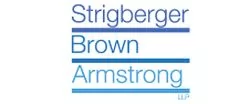In Kapoor v. Kuzmanski, on the eve of a trial, the Plaintiff brought a novel motion to exclude potential jurors who drive and pay for automobile insurance or who have insurance premiums paid on their behalf from the jury pool. The Plaintiff suggested that an inherent conflict of interest arose for these potential jurors due to the widespread and publicly known fact that increased court awards and settlements increased automobile insurance premiums. The Plaintiff alternatively sought orders that these same residents should be excluded from the jury selection process as being ineligible or based on widespread bias in the community. In the further alternative, the Plaintiff sought to strike the jury notice.
The motion was opposed by the Defendants. Additionally, the Attorney General of Ontario and The Advocates Society were invited to make submissions and render assistance as friends of the court. The motion proceeded before Regional Senior Judge Daley. Following lengthy submissions, the Court wholly dismissed the motion.
The selection and eligibility of jurors is mandated by the Juries Act. The Court noted that section 32 to 34 of the Juries Act deals with challenges and does not permit a broad/general challenge for cause. Rather, the Juries Act only allows for challenges for cause in civil cases on two grounds: (1) for want of eligibility; and (2) for ratepayers and officers/servants of municipal corporations, where the municipal corporation is a party. The Court recognized that a broad/general challenge for cause should not be read into the legislation.
Given that none of the parties involved in this action were a municipal corporation, the only basis for a challenge for cause was want of eligibility, which is addressed in section 3 of the Juries Act. Section 3(3) states as follows:
Connection with court action at same sittings
(3) Every person who has been summoned as a witness or is likely to be called as a witness in a civil or criminal proceeding or has an interest in an action is ineligible to serve as a juror at any sittings at which the proceeding or action might be tried.
The Court noted that this provision does not automatically disqualify jurors with an interest in the action and, further, nowhere does the Juries Act expressly state that lack of impartiality is a ground to disqualify a juror based on ineligibility. The Court concluded that the proper interpretation of section 3(3) led to the conclusion that the word “interest” could only reasonably be construed contextually to refer to having a “connection” to an action. Specifically, “has an interest in an action” was limited to witnesses and prospective witnesses. As such, the Court concluded that only individuals who are or who are likely to be called as witnesses are ineligible to serve as jurors under section 3(3).
The Court held that the Canadian system presumes that jurors are capable of setting aside their views and prejudices and acting impartially upon proper instruction by the trial judge. The Court found that a number of safeguards exist to ensure the integrity of the civil jury process and trial fairness, including the ability of the Court to discharge a juror during the course of a trial on several grounds, including impartially. Therefore, the presumption of impartiality may be overcome or displaced by calling evidence or by asking the Court to take judicial notice of facts (or both). However, a successful challenge cannot be based on speculation or assumptions.
Notably, the Plaintiff tried to rely on a survey that had been commissioned by his counsel as evidence of widespread bias. The survey was conducted over two days in January 2017 in Brampton. The Plaintiff alleged that this survey was expert evidence. The questions posed in the survey dealt with (1) the impact of higher automobile insurance premiums on the persons interviewed and (2) whether they would seek to lower their own premiums by limiting the damages awarded in a motor vehicle case or whether they would award damages regardless of the impact it would have on their insurance premiums. Notably, the survey was submitted as an attachment to an affidavit sworn by a law clerk.
A Voir Dire was held to determine whether the survey was admissible. First, the Court held that the evidence in the survey was hearsay at best and that, generally, social science and survey evidence was of uncertain quality and reliability. Second, the Court noted that opinion evidence should not be in the form of reports attached to an affidavit of a deponent who has no personal knowledge of the contents of the reports, as this essentially insulates the expert from cross-examination.
Third, the Court expressed concern that the survey did not consider whether the respondents, as prospective jurors, would be capable of setting aside bias if instructed to do so, as these types of questions were not posed. Fourth, the survey only surveyed individuals who drove and paid for auto insurance. It did not survey a random or representative sample of people. As such, it was considered to have little to no relevance or probative value.
The Court ultimately concluded that survey did not meet the minimum requirements to constitute expert evidence. Accordingly, it could not be admitted as expert evidence. The Court went on to find that there was no evidence whatsoever that would demonstrate the presence of widespread bias among Brampton citizens against the Plaintiff.
This decision is important because it confirms that jurors are always presumed impartial. Parties are not able to exclude jurors based on an allegation of bias before trial has even commenced. It is certainly difficult to believe that juries would continue to be representative of the general population if large population groups, such as people who pay auto insurance premiums, could be routinely excluded from the jury pool.
See Kapoor v. Kuzmanoski, 2018 ONSC 4770
The content of this article is intended to provide a general guide to the subject matter. Specialist advice should be sought about your specific circumstances.

